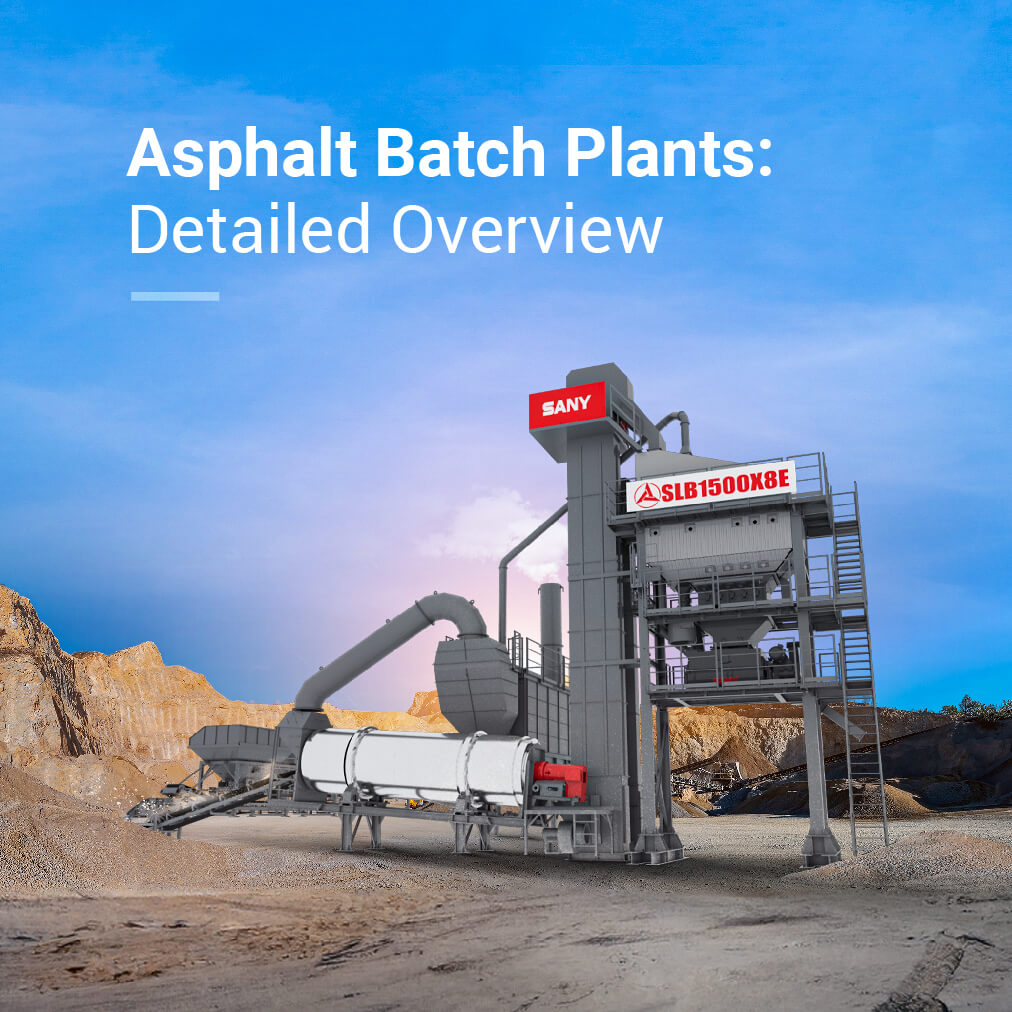Understanding the asphalt batch plant is essential for ensuring the production of high-quality asphalt, which plays a vital role in building durable and long-lasting roads. Beyond quality, these plants also improve efficiency by optimizing material usage and reducing waste during road construction projects. Having a solid grasp of how these plants operate allows for better quality control, minimizes the risk of defects, and ensures that the final product meets specific project requirements. In this article, we will delve into what an asphalt batch plant is, how it works, and why it's so important in modern construction. An asphalt batch plant is a facility that produces hot mix asphalt in batches rather than continuously. This method offers greater flexibility, allowing the production of various types of asphalt mixtures, such as hot mix asphalt (HMA), warm mix asphalt (WMA), and cold mix asphalt (CMA). The precision and adaptability of batch plants make them ideal for a wide range of road construction needs, from small-scale repairs to large highway developments. Here are the main components that make up an asphalt batch plant: Cold Feeder Bins: These bins store different sizes of aggregates and feed them into the system in controlled amounts, ensuring a consistent supply of raw materials to the drying drum. Conveyor Belt: A conveyor belt transports the cold aggregates from the feeder bins to the dryer drum, ensuring smooth and continuous movement of materials into the next stage of processing. Drying Drum: The drying drum heats the aggregates to remove moisture and reach the desired temperature. It is equipped with a powerful burner to ensure efficient heating and optimal mixing conditions. Elevator: The elevator lifts the heated aggregates from the drying drum to the vibrating screen, facilitating the transfer of materials for further classification. Vibrating Screen: This component separates the heated aggregates into different sizes, ensuring accurate classification before they are stored in the hot bins. Hot Bins: Hot bins temporarily hold the classified aggregates before they are weighed, ensuring that the right amount of material is available for mixing. Weighing Systems: These systems measure precise amounts of filler, aggregate, and bitumen, ensuring the correct proportions are used in the final mix. Pugmill Mixing Unit: The pugmill thoroughly mixes the ingredients to create a uniform and high-quality asphalt mix, ensuring consistency and performance. Dust Collection System: This system captures and removes dust from the process, helping to maintain environmental compliance and reduce air pollution. Control System: An advanced control system provides both manual and automated control over the entire operation, enabling operators to monitor and adjust settings for optimal performance and efficiency. The working principle of an asphalt batch plant involves producing hot mix asphalt in batches, offering precise control over the mix composition. The process begins with aggregates being stored in cold feeder bins and then measured and transferred to the drying drum via a conveyor belt. In the drying drum, the aggregates are heated using a powerful burner to remove moisture and achieve the required temperature. Once heated, the aggregates are lifted by an elevator to the vibrating screen, where they are separated by size and stored in hot bins. Then, the required quantities of aggregates, bitumen, and filler are weighed and fed into the pugmill mixing unit. The pugmill thoroughly blends these materials to produce a homogenous hot mix asphalt, which is then stored in a heated silo until it’s ready for transportation to the construction site. Asphalt batch plants play a crucial role in modern road construction due to several key advantages: Quality Control: These plants allow for precise control over the mix design, ensuring that the final asphalt is strong, durable, and suitable for heavy traffic and extreme weather conditions. Versatility: They can produce a variety of asphalt mixtures, making them adaptable for different types of projects, from minor repairs to major infrastructure development. Cost-Effectiveness: By minimizing waste and maximizing resource use, batch plants help reduce overall costs, especially when producing asphalt on-site. Environmental Benefits: Modern batch plants are equipped with emission control systems and can use recycled materials, contributing to more sustainable construction practices. Customization: The ability to adjust mix designs based on project needs makes these plants highly flexible and efficient for diverse construction scenarios. Asphalt batch plants are essential for any road construction project that requires high-quality, durable, and customizable asphalt. Their precision, efficiency, and adaptability make them a cornerstone of modern infrastructure development. Sany India is one of the leading manufacturers of asphalt mixing plants in India. Our SLB1500X8E asphalt batch plant is designed for superior performance, with a capacity of 120 tons per hour at 3% moisture content. It features a maximum total power of 275 kW, and its advanced design improves fuel efficiency by 10% and reduces preparation time by 15%, making it both cost-effective and eco-friendly. Choose Sany India’s asphalt batch plant for reliable, efficient, and high-performance solutions for your next road construction project. Forged Parts,Aluminum Forged Parts,Forged Components,Cold Forged Components Suzhou SNK Machinery Equipment Co.,LTD , https://www.snkforging.com
What is an Asphalt Batch Plant?
Key Components of an Asphalt Batch Plant
How an Asphalt Batch Plant Works
Why Asphalt Batch Plants Are Essential for Construction Projects
In Conclusion